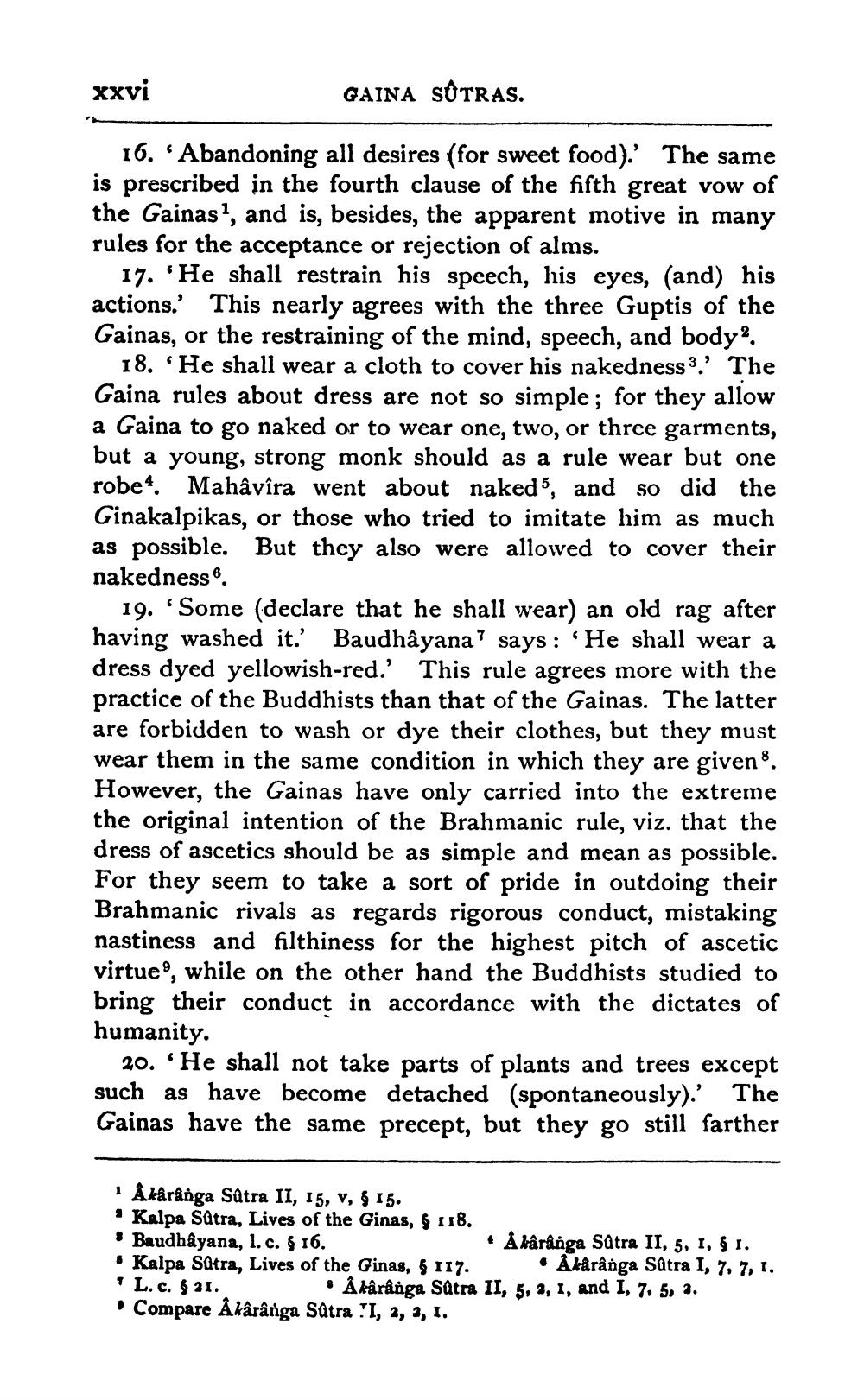________________
Xxvi
GAINA SÚTRAS.
16. 'Abandoning all desires (for sweet food).' The same is prescribed in the fourth clause of the fifth great vow of the Gainas?, and is, besides, the apparent motive in many rules for the acceptance or rejection of alms.
17. 'He shall restrain his speech, his eyes, (and) his actions. This nearly agrees with the three Guptis of the Gainas, or the restraining of the mind, speech, and body?
18. 'He shall wear a cloth to cover his nakedness 3.' The Gaina rules about dress are not so simple; for they allow a Gaina to go naked or to wear one, two, or three garments, but a young, strong monk should as a rule wear but one robe4. Mahâvîra went about naked, and so did the Ginakalpikas, or those who tried to imitate him as much as possible. But they also were allowed to cover their nakedness.
19. Some (declare that he shall wear) an old rag after having washed it. Baudhayana? says: 'He shall wear a dress dyed yellowish-red.' This rule agrees more with the practice of the Buddhists than that of the Gainas. The latter are forbidden to wash or dye their clothes, but they must wear them in the same condition in which they are given. However, the Gainas have only carried into the extreme the original intention of the Brahmanic rule, viz. that the dress of ascetics should be as simple and mean as possible. For they seem to take a sort of pride in outdoing their Brahmanic rivals as regards rigorous conduct, mistaking nastiness and filthiness for the highest pitch of ascetic virtue, while on the other hand the Buddhists studied to bring their conduct in accordance with the dictates of humanity.
20. 'He shall not take parts of plants and trees except such as have become detached (spontaneously). The Gainas have the same precept, but they go still farther
i Åkaranga Sätra II, 15, 1, $15. · Kalpa Satra, Lives of the Ginas, 6 118. . Baudhayana, 1. c. $ 16.
Å kârånga Sätra II, 5, 1, $1. . Kalpa Sætra, Lives of the Ginas, $117.
Å kårânga Sätra 1, 7, 7, 1. L.C. $21.
Åkârânga Sätra II, 5, 2, 1, and I, 7, 5, 3. Compare Å kärânga Satra 'I, 2, 2, 1.




